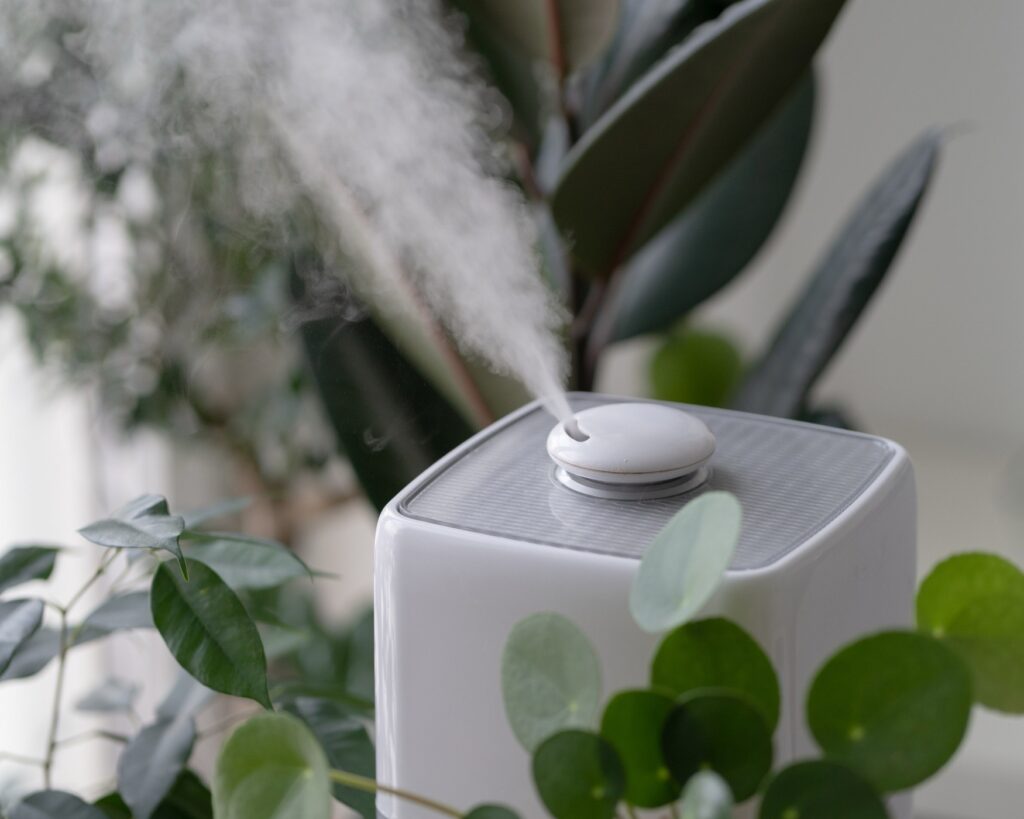As the first light of dawn creeps through my window, my day starts with a familiar yet unwelcome feeling. I wake up, and there it is again – the stuffy nose, the uncomfortable clog of mucus, those pesky morning boogers. It’s a routine as consistent as my morning coffee, and equally as jarring. For years, I’ve faced this daily nuisance, struggling to clear my nasal passages and start my day with a breath of fresh air.
This constant battle with morning nasal congestion isn’t just a minor annoyance; it sets the tone for my entire day. Trying to focus on work or simply engaging in morning conversations becomes a challenge when you’re constantly reaching for a tissue. It’s a struggle many can relate to, yet it’s rarely discussed openly. I’ve spent a good amount of time understanding this condition, experimenting with various remedies, and figuring out what works and what doesn’t. In sharing my journey, I hope to shed some light on this common yet overlooked issue and offer some insights into the potential solutions that can make mornings a little easier to navigate.

Understanding Morning Nasal Congestion: Causes and Triggers
In my quest to tackle morning nasal congestion, I first had to understand its roots. Turns out, several factors can contribute to this frustrating condition. Identifying these was crucial in finding an effective remedy. For me, the journey started with recognizing potential triggers, from environmental allergens to the dry air in my bedroom.
Environmental Allergens
I noticed that my congestion was often worse during certain times of the year, hinting at seasonal allergies. Pollen, dust, and pet dander can aggravate nasal passages, leading to that stuffy feeling in the morning. Keeping my sleeping area clean and free of allergens became a priority.
Dry Air and Indoor Heating
Another revelation came with the realization that the air quality in my home played a significant role. Dry air, especially in winter with the heating on, can dry out nasal passages. This often exacerbates congestion, making mornings particularly difficult. I started exploring ways to maintain a more humidity-balanced environment in my bedroom.
Personal Health Factors
Health conditions like sinusitis or a deviated septum can also lead to chronic nasal congestion. Consulting with a healthcare professional helped me rule out any underlying health issues contributing to my condition.
In managing these triggers, I discovered some effective remedies, including a particular bath technique similar to using Vicks VapoRub. For quick relief from a clogged nose, I found this Vicks-style bath method exceptionally helpful. It’s a soothing, simple solution that can alleviate congestion, providing a much-needed reprieve.

My Trial-and-Error Journey: What Worked and What Didn’t
Tackling morning nasal congestion has been a journey of trial and error. Over time, I’ve tried various products and methods to find what brings the most relief. Here are a few that have made a significant difference in my daily battle with congestion.
Over-the-Counter Nasal Sprays
One of the first solutions I turned to was over-the-counter nasal sprays. I found Flonase Allergy Relief Nasal Spray particularly effective. It not only helped with the congestion but also addressed the underlying allergy symptoms. The non-drowsy formula meant I could use it in the morning without worrying about it affecting my day. The bonus pack of tissues was a thoughtful addition, and the inclusion of headache relief caplets was a game-changer on particularly tough days.
Pain Relief and Decongestant Caplets
For days when sinus pressure and headaches were at their worst, I relied on Tylenol Sinus + Headache Daytime Non-Drowsy Relief Caplets. These provided quick relief from the sinus pressure and headaches that often accompany severe nasal congestion. The non-drowsy formula was crucial for me, as it allowed me to carry on with my day without feeling sluggish.
Home Remedies and Lifestyle Adjustments
In addition to these products, I explored several home remedies. Keeping my bedroom humidified, especially during dry winter months, made a noticeable difference. Regularly changing air filters and keeping my living space dust-free were also crucial steps. I also found that staying hydrated and practicing nasal irrigation with saline solutions helped maintain nasal health.
Each of these remedies and products played a role in easing my morning nasal congestion. It was about finding the right combination that worked for my body and lifestyle.

Professional Insights: Seeking Medical Advice
Realizing that self-medication has its limits, I sought professional medical advice to get to the root of my persistent nasal congestion. Consulting with healthcare professionals provided me with invaluable insights and tailored recommendations to better manage my condition.
Valuable Insights from Healthcare Professionals
Doctors emphasized the importance of understanding the underlying causes of nasal congestion, which could range from allergies to structural issues like a deviated septum. They advised me on appropriate medication and lifestyle changes that could offer relief. This personalized approach made a noticeable difference in managing my symptoms.
Recommended Changes and Treatments
One of the key recommendations was to improve the air quality in my home, especially during sleep. Dry air can exacerbate nasal congestion, so maintaining a balanced humidity level was crucial. Based on this advice, I invested in a Humidifier for Large Room Home Bedrooms. This particular humidifier, designed for large spaces, was perfect for ensuring that my entire bedroom had adequate humidity. Its 4.5-gallon capacity meant it could run all night without needing a refill, and the top-fill design made it easy to maintain.
The Impact of Professional Guidance
Following professional medical advice, along with using the humidifier, transformed my mornings. I noticed a significant reduction in nasal congestion and overall improvement in my sleep quality. It was a reminder of how professional guidance, coupled with the right products, can effectively address health issues like chronic nasal congestion.

Implementing Changes: Lifestyle Adjustments and Home Remedies
The journey to alleviate my morning nasal congestion led me to a combination of professional advice and personal adjustments. Implementing changes in both my lifestyle and environment, along with the use of specific products, played a crucial role in managing my symptoms.
Home Environment Adjustments
Understanding the impact of air quality on nasal health, I made significant changes in my home environment. The Humidifiers for Large Room Home Bedroom became a centerpiece in this effort. Its large capacity and effective humidification for spaces up to 2000 sq.ft. ensured that the air in my bedroom was moist, reducing the dryness that often aggravated my nasal congestion.
Daily Product Use
Incorporating products into my daily routine also made a substantial difference. The Flonase Allergy Relief Nasal Spray became a staple in my morning routine, effectively reducing the inflammation and irritation caused by allergies. On days when sinus pressure was particularly challenging, the Tylenol Sinus + Headache Daytime Non-Drowsy Relief Caplets provided much-needed relief, allowing me to function without the burden of headache and congestion.
Consistency and Patience
Implementing these changes required consistency and patience. Regular use of the humidifier, combined with the nasal spray and occasional use of the Tylenol caplets, gradually improved my condition. It was a process of understanding what combination worked best for me and sticking to it.
The Overall Impact
These lifestyle changes and product implementations transformed my mornings. No longer did I wake up feeling overwhelmed by congestion. The combination of maintaining a healthy environment and using effective products provided a comprehensive approach to managing my nasal health.

What are some lesser-known causes of morning nasal congestion?
Interestingly, dietary factors can sometimes play a role. Foods that trigger inflammation or allergies can contribute to nasal congestion. I realized that certain dairy products tended to worsen my symptoms. Reducing my dairy intake, especially before bedtime, made a noticeable difference. Also, sleeping positions can affect congestion. Sleeping on my back, rather than on my stomach, helped reduce the gravity-induced congestion I experienced overnight.
Can stress affect nasal congestion?
Absolutely, stress can have a surprising impact on nasal health. Stress can lead to inflammation in the body, worsening nasal congestion. I found that incorporating stress-reduction techniques like meditation and regular exercise not only improved my overall well-being but also seemed to alleviate my nasal symptoms.
Are there any natural supplements that can help?
Yes, certain natural supplements can support nasal health. For instance, I explored using bromelain, found in pineapples, which is known for its anti-inflammatory properties. Quercetin, a natural antihistamine found in many fruits and vegetables, also proved beneficial. However, it’s important to consult with a healthcare provider before starting any supplements, especially if you have other health conditions or are taking medications.
What should be avoided to reduce morning nasal congestion?
Besides the obvious like allergens and irritants, it’s important to avoid overuse of nasal decongestant sprays. While they can offer immediate relief, prolonged use can lead to rebound congestion, making symptoms worse. Also, minimizing exposure to pollutants and cigarette smoke is crucial, as these can significantly irritate nasal passages and worsen congestion.
How does the weather affect nasal congestion?
Seasonal changes can have a significant impact. I noticed that my nasal congestion tended to worsen with the onset of colder, drier weather. The lack of humidity in winter air can dry out nasal passages, leading to irritation and swelling. Conversely, high pollen counts in spring can trigger allergic reactions, resulting in congestion. Adapting to these seasonal changes, like using a humidifier in winter and being proactive about allergy management in spring, has been crucial.
Can changing your diet really help with nasal congestion?
I found that diet plays a more significant role than I initially thought. Foods high in spices can actually help clear nasal passages. On the other hand, dairy products can sometimes increase mucus production for some people, exacerbating congestion. Keeping a food diary helped me identify any correlations between what I ate and my nasal health, leading to more informed dietary choices.
Is there a connection between exercise and nasal congestion?
Definitely. Regular exercise improves overall circulation and can help reduce inflammation, which in turn can alleviate nasal congestion. I noticed that after a workout, my nasal passages often felt clearer. However, it’s important to choose indoor activities when outdoor allergen levels are high, as outdoor exercise can worsen symptoms.
Are there any long-term strategies to manage chronic morning nasal congestion?
Long-term management involves a combination of lifestyle changes, environmental adjustments, and possibly medical interventions, depending on the underlying cause. Regular check-ups with a healthcare provider, maintaining a clean and allergen-free home environment, staying hydrated, and managing stress are all key components. It’s also about being mindful of your body’s reactions and adapting your strategies as needed.
As an Amazon Associate we earn from qualifying purchases through some links in our articles.




